 W
WFallout is a series of post-apocalyptic role-playing video games—and later action role-playing games—created by Interplay Entertainment. The series is set during the 21st, 22nd and 23rd centuries, and its atompunk retrofuturistic setting and art work are influenced by the post-war culture of 1950s United States, with its combination of hope for the promises of technology and the lurking fear of nuclear annihilation. A forerunner of Fallout is Wasteland, a 1988 game developed by Interplay Productions to which the series is regarded as a spiritual successor.
 W
WCreation Club is a system of microtransactions designed by Bethesda Game Studios for its games Fallout 4 and The Elder Scrolls V: Skyrim – Special Edition. The system was launched for Fallout 4 on August 29, 2017.
 W
WThe Creation Engine is a 3D video game engine created by Bethesda Game Studios based on the Gamebryo engine. The Creation Engine has been used to create role-playing video games such as The Elder Scrolls V: Skyrim, Fallout 4, and Fallout 76.
 W
WThe Deathclaw is a fictional reptilian species from the post-apocalyptic Fallout video game franchise. They were created by humans as biological weapons prior to the series' in-universe nuclear war. Escaping into the wild afterwards, they went on to thrive in the nuclear wasteland, becoming apex predators. Known as one of the Fallout series' most recognizable and iconic elements, Deathclaws were praised by critics for their design and the fear they induce in the player due to their immense power. As a result of their popularity, numerous mods were created for Fallout series games with the Deathclaw as a central theme, either to tame the creatures as a pet or use them in combat, concepts which were later added as an official feature.
 W
WDogmeat is a recurring dog non-player character (NPC) in the Fallout series of post-apocalyptic themed role-playing video games. Dogmeat was introduced as an optional companion to the player character in the original Fallout (1997), and has made cameo appearances in the sequel Fallout 2 (1998) and in some other video games. Other, different Dogmeats are featured in the same role in Fallout 3 (2008) and Fallout 4 (2015). All incarnations of the character were well received, becoming widely regarded as one of the best remembered features in the series, as well as one of the most popular sidekick type characters in video gaming overall.
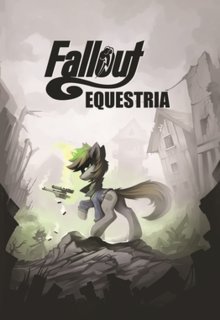 W
WFallout: Equestria is a post-apocalyptic fan fiction book based on the Fallout and My Little Pony: Friendship is Magic series. It was originally published by anonymous user Kkat on April 12, 2011. It is split into five volumes, totalling 620,000 words across more than 2,000 pages. The book has been published as an e-book, an audiobook, and also as a physical hardcover book. The book is considered to be one of the most popular My Little Pony: Friendship Is Magic fanworks, having developed a large following of its own.
 W
WFallout: Nuka Break is a live-action fan-made web series made by Wayside Creations and set in the Fallout video game universe. Its direct setting is derived from both Fallout 3 and Fallout: New Vegas. Nuka Break features three main characters, a "Vault dweller, his ghoul companion, and a slave they freed from New Vegas". Along with the sets, puppets are used for some of the scenes, while CGI is used for the gun battles and other scenes. The series features actor Doug Jones as a guest star, playing Mayor Conners, and voice actor Vic Mignogna as the merchant/narrator.
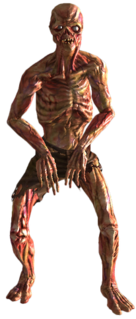 W
WGhouls are a fictional race of posthuman beings from the post-apocalyptic Fallout video game franchise. Within series lore, ghouls are originally humans, many of them survivors of a global nuclear holocaust, who have been severely mutated by the residual irradiation, which greatly extends their lifespans but deforms their physical appearance into a zombie-like aesthetic. Many ghouls live alongside humans in settlements across the post-apocalyptic wasteland, while others mentally degenerate into a wild and antisocial state.
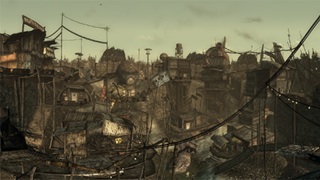 W
WMegaton is a fictional town in the video game Fallout 3, part of the post-apocalyptic Fallout franchise. Located in the Capital Wasteland, the former Washington metropolitan area, Megaton is a fortified settlement housing dozens of survivors from a devastating nuclear war, constructed out of scrap metal and other scavenged materials. It is roughly situated in McLean, Virginia. Megaton has gained recognition from critics for its visual design, its inhabitants, as well as a quest, The Power of the Atom, involving a dud "C-23 Megaton" nuclear bomb located in the center of town. While the townspeople believe the bomb to be inert, it is revealed that the warhead is still primed. The player may choose to disarm the bomb permanently, or detonate it from the nearby Tenpenny Tower to appease Allistair Tenpenny, an eccentric entrepreneur who wants Megaton destroyed. This moral choice, which can result in Megaton's permanent annihilation and the deaths of most of its residents, proved controversial and led to the game being censored for Japanese audiences.
 W
WThe Pip-Boy is a fictional wearable computer in the post-apocalyptic Fallout video game franchise. Manufactured in-universe by RobCo Industries prior to the devastating nuclear Great War, it is capable of numerous functions depending on the model. In the Fallout games, it functions as a diegetic way for the player to access the menu and manage their inventory.
 W
WPower Armor, also referred to as powered combat infantry armor, is a type of powered exoskeleton that appears in the post-apocalyptic Fallout video game franchise. In the fictional lore of the series, it was developed before the Great War, a devastating nuclear conflict, by a group of United States defense contractors called West Tek. It not only allows for protection from enemy fire but enables the wearer to carry extremely heavy weapons and other objects with ease. Power Armor has been called an iconic aspect of Fallout, and has featured as an item in every game in the series. In Fallout 4, Power Armor was notably more heavily integrated into gameplay, with suits becoming customizable, interactable objects in the game world that the player climbs into rather than typical clothing, and requiring power cells to use.
 W
WSuper Mutants are a fictional race of posthuman beings from the post-apocalyptic Fallout video game franchise. Within series lore, Super Mutants are originally ordinary human beings that have been mutated to be much larger and stronger as a result of exposure to a genetically engineered viral mutagen. The Super Mutants of the Fallout series tend to be depicted as savage and innately violent beings who, as a result of their transformations, lost a substantial amount of intelligence and often have cannibalistic tendencies. While Super Mutants tend to form their own factions or societies and are usually hostile to civilized humans, some have chosen to live peacefully alongside humans in settlements across the post-apocalyptic wasteland.
 W
WNick Valentine is a fictional character in the post-apocalyptic themed Fallout media franchise. Valentine is first introduced as a non-player character in the 2015 role-playing video game Fallout 4, where he plays an important role in its main plotline by lending his assistance to the search for the abducted son of the game's player character, the sole survivor of a cryogenics-focused facility designed to withstand nuclear fallout built by a technology company known as Vault-Tec. Valentine is a type of sophisticated biomechanical android characters in Fallout 4 call a "Synth", with cracked synthetic skin torn in spots which expose the metallic structures underneath. Possessing the preserved memories of a human police detective of the same name, Valentine is a private investigator whose speech and mannerisms echo the archetypal detective protagonist from hardboiled fiction. Valentine's other appearances include Fallout: Wasteland Warfare, a miniatures wargame which adapts the Fallout universe. Valentine is voiced by American voice actor Stephen Russell.
 W
WVault Boy is the mascot of the Fallout media franchise. Created by staff at Interplay Entertainment, the original owners of the Fallout intellectual property (IP), Vault Boy was introduced in 1997's Fallout as an advertising character representing Vault-Tec, a fictional megacorporation that built a series of specialized fallout shelters throughout the United States to serve as a front for unethical experiments performed on unsuspecting participants prior to the nuclear holocaust that sets up the world state of the Fallout universe. Within the video game series, Vault Boy serves as a generic representation of the player character's statistical information within user interface (UI) menus, and is a recurring element in Vault-Tec products found throughout the fictional Fallout universe. His likeness also appears as a customizable skin for the Mii Gunner character in Super Smash Bros. Ultimate.
 W
WRonald Francis Perlman is an American actor. His credits include the roles of Amoukar in Quest for Fire (1981), Salvatore in The Name of the Rose (1986), Vincent on the television series Beauty and the Beast (1987–1990), for which he won a Golden Globe Award, One in The City of Lost Children (1995), Johner in Alien Resurrection (1997), Hellboy in both Hellboy (2004) and its sequel Hellboy II: The Golden Army (2008), Clay Morrow on the television series Sons of Anarchy (2008–2013) and Nino in Drive (2011).
 W
W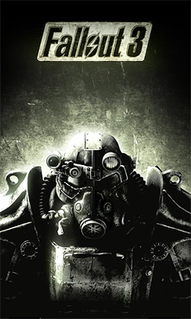 W
W W
W W
W W
W W
W W
W W
W W
W W
W W
W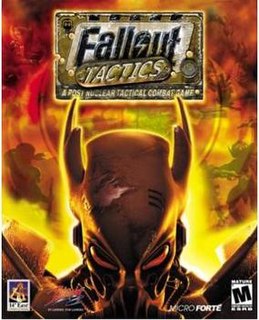 W
W W
W W
W W
W W
W W
W W
W W
W W
W W
W